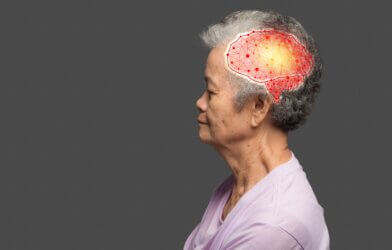Depression is a devastating, demoralizing, recalcitrant disease. Compounding the debilitating condition are its consequences. One of these consequences, which can be particularly cruel, is the increased risk for developing another demoralizing condition which is irreversible and for which there is no cure. That condition is dementia. Now, a new study demonstrates that treatment earlier in the course of depression may help minimize or prevent dementia, lessening the burden of the disease.
Dementia is not a specific disease. Rather, it’s a general term for the impaired ability to remember, think, or make decisions that interferes with doing everyday activities. Alzheimer’s disease is the most common type of dementia. Though dementia mostly affects older adults, it is not a part of normal aging.
Within the United States, there are at least 5 million people currently living with age-related dementias. As the population increases, these numbers are expected to rise. To put this into perspective, it’s estimated that one out of every six women, and one out of every ten men, living past the age of 55 will develop dementia.
The study was led by Dr. Jin-Tai Yu of the National Center for Neurological Diseases in China, and Wei Cheng, PhD, Institute of Science and Technology for Brain-Inspired Intelligence, Fudan University, Shanghai, China.
Professor Yu and Professor Cheng used data collected by the UK Biobank, from more than 350,000 participants. Of the 46,280 participants with depression, 725 developed dementia.
Past studies, in which pharmacotherapies and psychotherapies were used to decrease the risk for dementia had mixed results. “Older individuals appear to experience different depression patterns over time,” says Professor Yu. “Therefore, intra-individual variability in symptoms might confer different risk of dementia as well as heterogeneity in effectiveness of depression treatment in relation to dementia prevention.”
To investigate the variability among the participants, they were categorized into various stages of depression. The researchers found that depression elevated the risk of dementia by a startling 51 percent. The degree of risk corresponded to the features of the individual’s depression. Participants with increasing, chronically high, or chronically low depression were more prone to dementia. Those with decreasing depression did not have a greater risk for dementia than subjects without depression.
Subjects with increasing and chronically low courses of depression saw lower risk of dementia with treatment, but those with a chronically high course saw no lessening of dementia risk.
“Once again, the course of ineffectively treated depression carries significant medical risk,” says Dr. John Krystal, editor of the journal Biological Psychiatry, which published the paper. He notes that, “in this case, symptomatic depression increases dementia risk by 51%, whereas treatment was associated with a significant reduction in this risk.”
“This indicates that timely treatment of depression is needed among those with late-life depression,” adds Professor Cheng. “Providing depression treatment for those with late-life depression might not only remit affective symptoms but also postpone the onset of dementia. The new findings shed some light on previous work as well. The differences of effectiveness across depression courses might explain the discrepancy between previous studies.”












